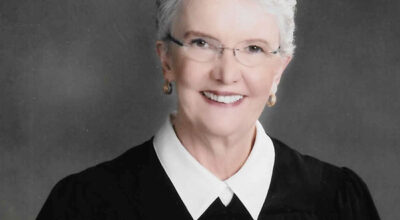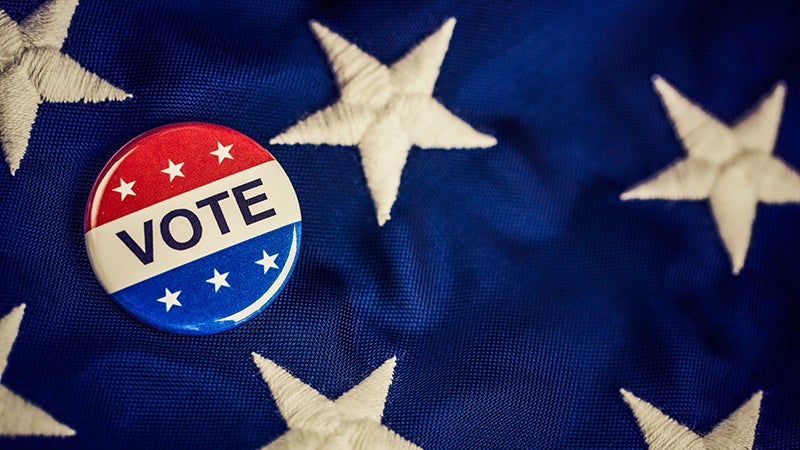Australians in Texas: Similarities, strong will link locals to folks Down Under
Published 12:14 am Friday, January 10, 2020

- Herb Kreutzer, left, and Mike Laws. (Courtesy photos)
The indomitable spirit of Australians, especially rural Australians, has been likened by some to the tenacity and spirit of Southeast Texans.
“Australians are, as much as possible, self-sufficient, and they have such an attitude of “we’ll fix this,’” Groves businessman and a Port Arthur teacher Herb Kreutzer said. “Australians are pretty much, we’ve been through this thing and we’ll get over it.”
Kreutzer has family and friends in Queensland, where dozens of fires remain ablaze. He learned of those fires nearly two months ago from his sister, and the fires in New South Wales — where images of stranded wildlife are being widely seen — were burning even then, he said.
To better understand the issue at hand, he explained the continent of Australia is close to the size of the United States minus Alaska, but with considerably less population and its people spread farther apart.
“Our population is only about 25 million in the whole country, where the population of America is approximately 325 million,” he said.
Bush fires aren’t new to Australia — it’s currently summertime there and hot — but this year is worse than others as there is drought.
Kreutzer explained the government is different in the country and they mostly have volunteer fire brigades. There is an Australian State Emergency Service partly funded by the government, and the government will match funds raised for fire service.
“So most of the equipment you see has been saved or donated by a lot of the country people, not so much the government,” he said. “In a natural disaster, the people of the town get together and they deal with the natural disaster other than calling the government.”
Kreutzer said people will travel from other areas that are not on fire to assist.
“If anyone of us were at home, pretty much everybody would be fighting the fire one way or another,” he said.
Some folks would provide the food or materials needed and businesses would donate items to help.
“There are a lot of Australians, given the opportunity to go home, who would,” he said.
Local businessman Mike Laws has been in the U.S. for about 30 years and hails from Melbourne, Australia. His two sons are there and a bunch of friends.
Air quality from the fires, he said, is the main concern in the Melbourne area.
“The fires are so huge the city is getting some really bad air quality,” Laws said. “And the air quality is affected as far as New Zealand, a couple thousand miles away. This is just a different type of natural disaster.”
Living day to day with the bush fires depends of where people are. Most are likely glued to the news for updates but the lives of people in the country are really disrupted.
Those people are the ones who had to evacuate or get their family to safety while they guard their homes and livestock.
Laws has a friend, Kevin, who is a farmer in rural Australia, and the two keep in touch. He sees parallels in his farmer friend and the folks in Southeast Texas.
“Rural Australians are kind of like Texans. They are self-sufficient, defiant, stand-on-your-own, look after each other,” he said. “There are a lot of similarities in the human qualities.”
Laws’ friend has a disabled daughter and lives on a farm that’s about 300 to 400 acres in New South Wales that is in the path of the fires. He evacuated his wife and kids because they were having trouble breathing — they ended up in the hospital because of the smoke.
His friend stayed at the farm on his own to try and prepare for the fires, to do what he could to potentially save his house, and in case the fires start there, to shoot his livestock so they would not suffer.
“He’s preparing 5-gallon buckets around his house every five feet with water to be able to hit a hot spot,” Laws said. “I said, man, I wish I were there to help. He said, ‘Mate, I had four people who wanted to come over and help.’”
The farmer rejected the help, saying he couldn’t bear it if something bad happened to them.
“I can think of a boatload of Texas the same way,” Laws said. “There are a lot of similarities in the heart and sprit of Texans. I’ve gone through every hurricane, tropical storm, flood, everything that hit the area in the last 20 years. In doing that, you see people at their best and their worst. But people helping people, people wanting to help people, that’s enough to bring tears to your eyes.”
Australia, he said, has the same sense of community as Texas, and that’s part of what he loves about the area.
“Let’s face it, Southeast Texas has a horrible climate, is mosquito infested and there’s not a whole lot to do, but it’s the people who make it what it is, that and the natural environments,” he said.
Southeast Texans, when faced with adversity such as natural disasters, are not ones to flee in fear; instead they will make sure their family and loved ones are OK, then try to go out and help others, he said.
“There’s a certain special, magical beauty that I can sometimes see in humanity in the worst of circumstances,” Laws said.





